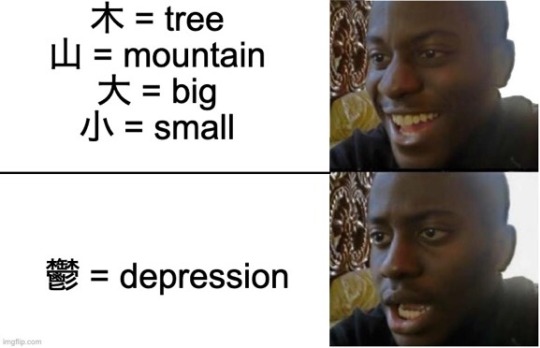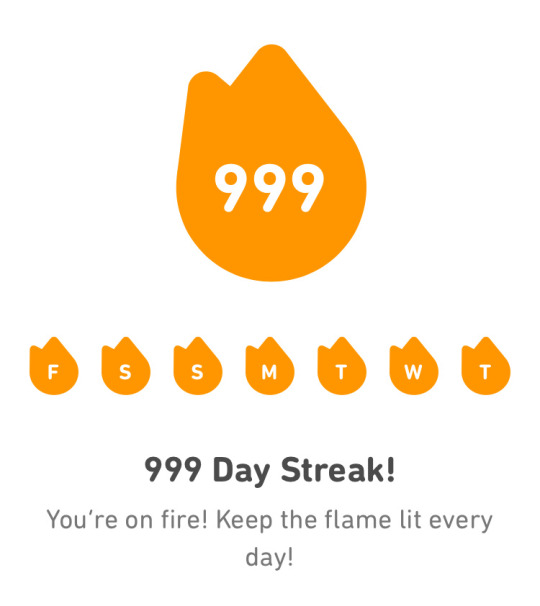Link
Something really bad is spreading within online language-learning communities, and it’s not intentional. In general, the positivity and motivation on langblr, language tumblr, or studygram, study Instagram, are really common. It’s good to motivate people to make positive changes to improve their language skills. However, jealousy is a powerful byproduct of the motivation-focused social media accounts. What can we do to overcome polyglot envy?
What is polyglot envy?
Polyglot envy is the jealousy that language learners experience when treating language acquisition as a leaderboard. It’s natural human psychology to compare yourself to people similar to you. In school, it’s classmates. At work, it’s coworkers that joined at a similar time to you. In our world controlled by social media, people that share a hobby will compare themselves just as much.
Generally, online language learners will experience some jealous feelings when comparing the language abilities of their (perceived) equals. This could be about someone’s speaking ability, frequency of studying, or the sheer number of posts someone makes about their target language. The triggers for envy are endless. This could be someone’s flag emojis in their profile. Speaking practice videos might trigger this feeling. At the heart of it, comparing your skills to another person’s skill create something that I call “polyglot envy.”
Why do some people experience this?
Online language learners are particularly motivated, which contributes to something that may turn into toxic competitiveness. If you are motivated enough to learn a language, which most people don’t even want to do in school, it’s almost guaranteed that you will feel seek out constant improvement. That’s on top of the fact that language learning is a hobby that is generally social. You will therefore always be encountering people that can share their skills. This dangerous concoction can create a situation where online language learners become obsessed with being better than the others.
Be wary of social media
A big reason that some polyglot envy can be so severe is because of how social media presents language learning. Because you are only seeing a portion of someone’s life, you cannot see the blood, sweat, and tears. Nobody posts the day that they don’t want to learn. It would be really strange to see someone post “didn’t feel like learning language today; did nothing” on Instagram.
Social media is a curated perspective of someone’s life. In regards to language learning, you only see people’s successes and not their failures. Videos are edited to include only the best takes of someone using a language. Instagram posts only go live when the poster actually accomplished something. It’s not intentional that people give an inaccurate view; it’s the nature of social media that people only post the interesting parts. That’s not to underestimate the performative posts that exaggerate people’s abilities for views.
Like any social media niche, language learners can get more views by using inflammatory titles that aren’t necessarily accurate. Titles like “POLYGLOT speaks OVER TEN languages” or “WHITE GUY surprises STOREOWNER with his PERFECT CHINESE” are bound to get more clicks, but they can create a false image that you should be doing everything you see. However, what people do not post is the effort that goes into learning a certain grammar point. There is nothing glamorous about posting a video about how you didn’t understand the difference between these two tenses then looked up 7 different resources on the topic, and you still don’t fully get it. The problem is that that is the reality. For everyone, even the most seemingly genius people online struggle.
Social media will never communicate this to you. A major step in overcoming polyglot envy is to recognize this inaccuracy to reality.
Stop comparing yourself!
I think the most important part to avoid polyglot envy is to attack the source of the envy: comparing yourself. We are all different people. It simply makes no sense to compare yourself to others; there are millions of factors that contribute to the reason we are at our current levels in our languages.
Imagine a person who is mother of two children, has to work 40 hours a week, goes shopping, laundry, childrearing, and only finds 10-15 minutes a day to improve her French. How can you compare her to the 19 year old part-time university student who doesn’t need to work and has all the time in the world to learn ten languages? With the given situation, 10-15 minutes a day is a huge accomplishment.
The flashiest online polyglots dedicate most of time to language learning, so assuming you need to be at their level will only hurt you. Even if you compare yourself to someone in your age group with a similar lifestyle to you, it is still really bad to assume their situation because the internet conceals the uncomfortable truths about language learning. You can see them post their aesthetic notes, but you did not see deeply they understood the material. The person with the ugly notes might have worked harder, but social media could have you thinking the most beautiful notes or most enthusiastic speaker has the best skills.
Although I love to post my language efforts of the day onto my Instagram, I always try to make an effort to show the real side of my thinking in the caption. “lol I don’t get it, and I think I never will” caption so many of my posts, and I put an effort to show my weaknesses. I don’t want to push the idea that everyone should have an easy time with language learning or that I am some perfect language learner.
Think relatively
It is important to remind yourself that any studying is good. The thought that “I am not studying enough” should never cross any language learners mind. Of course, there is room for motivation and pushing yourself, but we should be very vigilant that we are not setting unhealthy expectations. The average person spends no time learning languages, so spending 10 minutes a day is totally fine. The average American or European does not know any Chinese characters, so it makes no sense to beat yourself up over the fact that you do not know the same number as another language learner. Knowing 2000 is better than knowing 1000, but knowing 10 is better than knowing 1. The fact that you have studied a language at all is already a victory in and of itself.
140 notes
·
View notes
Text
english: coconut oil
french: :)
english: oh boy
french: oil of the nut of the coco
771K notes
·
View notes
Text
i am learning german. when i see the word ‘die’, instead of death, things like roses or romantic poems come to mind. what has german done to me.
29 notes
·
View notes
Text
https://youtu.be/TMfHL2jBc18
youtube
Essential knowledge in 13 languages
1 note
·
View note
Text
My best friend sometimes skipped the Oma-part, and she only called hers Székesfehérvár (the town she lived in) and I still laugh at it sometimes 😂
In my area, when you talk about your grandparents in order to distinguish them, you say ‘Oma +town where she lives’. You don’t say her name (that’s why I didn’t know the name of my grandmas for a long time haha).You can also use abbreviations for the town, my grandma lives in a city than ends in ‘tal’, so now I say ‘Oma Tal’. Anyone else do this? Is it a German thing? Do other cultures say the same? (Note: you don’t say that when you talk to your grandparents, just when you talk about them)
28 notes
·
View notes
Text
Brutally Honest Rules for Language Learners
If you can`t make your own examples to a grammar rule, you don`t know this grammar rule.
Learning words without context is almost useless. You may repeat something like “road” or “deeply” millions of times and still forgetting them in the most important situations. Memorize phrases instead. e. g. “I crossed the road” and “to be deeply ashamed”.
Prioritize. There are almost 500 000 words in the English language and even more in some non-European languages. If you decide to learn 5 words a day, you`ll need a shitload of time to cover at least the third of the whole vocabulary. So, know precisely what words are the most frequent and the most important for you personally.
No, you won`t learn a language by listening to songs ONLY.
If your level of knowledge is Intermediate or higher, you don`t need the fucking subtitles. Well, in the beginning, you will have a terrible headache and doubts about the whole thing, but every video will be making you a little better. You`ll slowly get used to the accents and intonation. It`ll stop to sound like the endless phrase without any pauses. Just give yourself some time.
Translation from the native language to the target language is useless (if you`re not going to become an interpreter). Write the short texts in your target language instead.
Forget about boring topics from the textbooks. Argue with somebody in the comment section under your fav YouTube videos. Try to persuade me that the Earth is flat (I know it`s insane, but you`ll remember it much better than writing the essay “The current problems of ecology”). Rewrite your own posts. Write down 15 phrases do describe Donald Trump. I mean… Everything is better than a standard way of learning that doesn`t express your inner self.
Check the pronunciation of ALL the words.
ALL the time. Your intuition is a great tool. However, it doesn`t cure all the irregular cases. Just look at English words “daughter” and “laughter”, “head” and “heat”, “though” and “thought”. They look almost similar but they sound in ABSOLUTELY different ways. There`s a possibility that your target language also has a lot of such cases. Just spend few seconds on looking at the transcriptions. It doesn`t hurt, I promise.
The post/challenge for those who want to find a language partner.
7K notes
·
View notes
Text
i don’t know why but i’m really amused by the winner of some ‘new kanji’ contest:

compare with the real kanji

座 (seat/gathering), but the two 人 (person) radicals have been moved from next to each other within the 土 (earth) radical to diagonally from each other, making this “social distance(d seating/gathering)”
92K notes
·
View notes
Text


someone said you can’t have depression in japan/japanese bc you can’t spell it. ✨cured✨
3K notes
·
View notes
Text
How To Say "No" To Your Boss
In the previous post, we learn how to reject/decline an offer from close friends, colleagues, family.
Here, you will learn how to say "No" to someone higher rank/status than you such as your boss, manager, supervisor, etc.
Let's say your boss wants you to stay for overtime but you have other plans.
There are 3 phrases you need to say:
1. Politely apologize
2. Give a reason for declining
3. Apologize again.
Here's the phrases for each step:
1. すみませんが... (I'm sorry...) *BOW
2. 予定があるのでできません (I have other plans, I can't)
3. 申し訳ございません。(I'm so sorry) *BOW
Here's the whole sentence:
すみませんが (BOW) 予定があるのでできません申し訳ございません。(BOW)
Then your boss would probably say something like this:
そうでか。わかりました。他のを見つけます。
Is that so? Got it. I'll find someone else.
After your boss has accepted your apology, you have to apologize again by saying:
すみません。よろしくお願いします。*BOW
I'm sorry. Thank you for your kindness.
Your boss will end it by saying:
大丈夫です。
It's alright.
REMINDER: Remember to bow as stated in CAPITAL LETTERS.
137 notes
·
View notes
Photo
Book moth in Hungarian

I’m all over this.
17K notes
·
View notes






